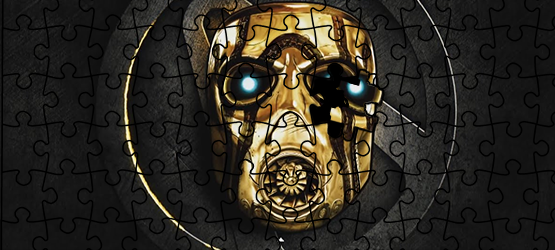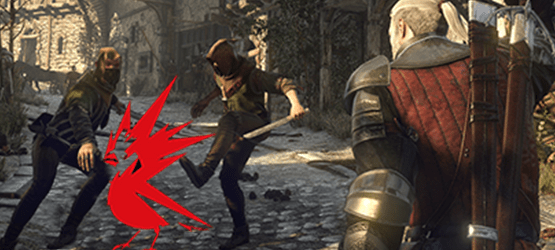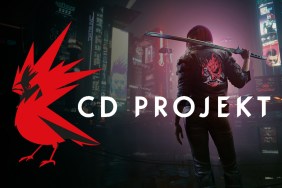Game patches are common in our current day. In fact, more often than not, we see games get updated on day one, with patches and updates coming to fix minor issues that may plague the game for some users. No games seem to be immune, and most recently we’ve seen patches for The Witcher 3, Borderlands Handsome Collection, Dying Light, and Destiny. Today Daily Reaction is looking at game updates and the unfair bullying that seems to follow developers who decide to patch their games.
Handler: We discussed the connected era and the onset of increasing DRM measures in a previous Daily Reaction. The constant connection of new technology has another advent that some see as a boon, and some see as a free pass to developer lethargy: Patches and updates. Bugs and issues discovered by players after release are most often tackled by these game updates that take up space on the hard drive, require an internet connection, and can have the negative effect of highlighting a game’s rough edges.
Sadly, I think patches are seen in a very bad light. Should games work on day one? Sure. Absolutely. But nothing and nobody is perfect, and inevitably there will be issues. Games that released in earlier generations when patches weren’t available? You can bet there were elements of every one of those games that the developers see and wish they could go back in and fix. In fact, if you are a developer of a PS1 or PS2 era title that has familiarity with this matter, I would invite you to leave your experience in the comments below. I’m very curious to hear if all of my PS1 and PS2 games were actually perfect with no issues discovered after the game went gold or if there are things you wanted to fix.
Personally, I see patches as continued support for a title, rather than a sign of lazy development. Originally, when a game went gold, the developer was done working on that game. It was pressed to a disc and that was it. Now, even after a game is sent out to be printed, developers are putting in long hours to find every last bug or issue that they can, and will often correct anything they find with a patch on release day. Does this mean the development was lazy? Or is it simply admirable support for a game when a developer is not content to rest on their laurels after the title has made it onto a disc?
The other benefit of patches and updates is the ability to listen to widespread fan feedback and actually react to it. With the connected era of games and technology, developers can get a better sense in real time of exactly what players are saying about the game, from the issues, to things they want to see, to stats about styles of play. This is an unprecedented level of feedback that has never been available, and developers would be remiss to do nothing with all of the information being offered to them.
The Witcher 3’s most recent patch improves on many small graphical issues, and gives options for increased text size, which primarily came from people talking about the tiny text. Borderlands Handsome Collection’s patch improved some of the sluggish framerate issues that the game was said to have at certain points. Patches should not be seen as an admission of guilt or a problem, but rather as an extra layer of polish and attention that developers would not otherwise be able to offer in an industry where crafting a player experience is becoming increasingly complex.

Dandler: I have said it in the past, and I will have to say it again. No publisher, or developer will ever want to release a game that doesn’t work the way it was intended. There really is very little point in purposefully diminishing a title’s brand power for no reason. This, of course, doesn’t mean that a game’s release cannot be pushed out the door before it is ready, as there can be genuinely countless reasons for such a thing to occur.
Many gamers simply imagine a game is put together like a hamburger (following yesterday’s food trend), where it is simply prepared, pieced together, and then shipped out by one person or group to live or die by its presentation and quality, but that isn’t the case. The reality is that many departments are all working on set timelines so that a launch can get the most market impact possible. From there the complexities only amplify, as it leaves a controlled environment and hits the general public’s hands.
What all of this means is that if something does go wrong on one side of development, or marketing, the ability to stop the force behind a product is a massive decision that can become incredibly costly. This means that, depending on the problem, how early it occurs, and what a delay could mean will determine if a product will need to be patched right of the gate. If we compound this with the growing complexity of just about every major title currently being released, the potential for more and more errors to pop grows exponentially, meaning that things will happen, and decisions need to be made.
While many gamers will be unhappy that game X has a few bugs, there is rarely a case where something cannot be fixed or lived with. The usage of the word “broken” has become latched onto anything with any sort of issue, because obviously people cannot play a game at all if a tree pops in out in unexpectedly, or your character model does something weird while running around. A great deal of this has to do with the failure to recognize that games are growing in complexity, which means that, like every other product, we are going to have early adopter problems.
Anyone who has joined an MMO years after its release will generally have a much more streamlined experience than those who were onboard from the start. Does this mean that it was released too early and should have been tested for years before launching so it could hit the market at full potential? Obviously not. Games will need to be patched, things will become streamlined the more developers find out about what works and what doesn’t. Does this mean it isn’t OK to complain? No, we do need to inform developers about what works and what doesn’t, but it does need to be constructive criticism. I would say that it does mean that people who complain about patches should probably stick with playing tic-tac-toe, because the industry is moving forward whether you like it or not.
Has your constructive criticism led to improvements in a game? Do you see patches as an extra layer of polish or a plague on the industry? Update the comments below, send version 1.01 of your emails to DailyReaction@PlayStationLifeStyle.net, or enjoy our updates on Twitter @Foolsjoker and @Finchstrife.
To update yourself on previous Daily Reaction articles, click here.








